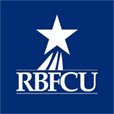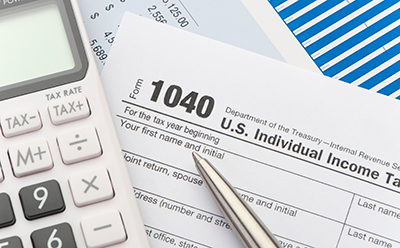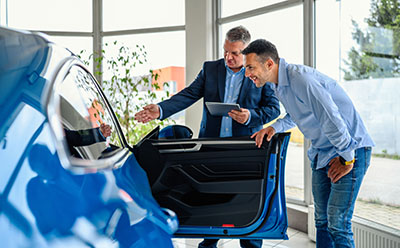Considering a Car Lease Buyout? What I Should Know
A car lease is designed to get you into the car you want right away without paying a large sum of cash when you drive the vehicle off the lot. When the terms of the lease expire, you’re obligated to return the car to the leasing company.

But what if you’d like to keep the car rather than go through the process all over again? You do have the option of buying out the lease. If you want to complete that transaction, here’s what you should consider:
Cost of a Lease Buyout
The first step in figuring out if your leased vehicle is worth buying is to review your lease agreement and find the residual value (this also can be called your “buyout amount”). This residual value is non-negotiable and the amount depends on vehicle year, make and model, the specifics of the leasing deal, previous sales prices and vehicle demand. You’ll also need to consider any applicable taxes, Department of Motor Vehicle fees and pre-determined administrative fees that have to be paid to the leasing company.
Vehicle condition
The amount you owe when the lease expires can increase if your vehicle exceeds the mileage limits set out in the lease agreement. You can also be charged for excess wear and tear. It’s recommended that you factor in those penalties when you’re deciding whether buying your lease is the right move because when you complete a lease buyout, you will not be penalized for going over your allotted mileage or having a dent in your fender.
You’ll also need to evaluate the future cost of upkeep and maintenance. If you already have a mechanical issue with the car, see if it can be remediated through the warranty that comes with the lease.
Financing
If you’ve decided that it makes sense to buyout the lease, contact the leasing company and find out the information you’ll need to terminate the lease. Possibly, the representatives of the leasing company will ask if you want to finance the purchase through them. Explore other financing options before making a final decision.
RBFCU offers the same low rate for a lease buyout, new auto loan or refinance. RBFCU can help you determine the amount based on your lease agreement.
When it comes to what you should consider when buying out a lease, you can recap your decision by following this outline. If you desire to keep your vehicle when your lease is coming to an end, consider the following:
- Cost of a Lease Buyout: Review your original lease agreement for the Residual Value, or the purchase price option.
- Residual Value amount depends on:
- The Residual Value amount is non-negotiable
- Vehicle year, make and model
- Specifics of leasing deal
- Previous sales prices
- Vehicle demand
- The Residual Value amount is non-negotiable
- Any applicable taxes
- Department of Motor Vehicles (DMV) fees
- Pre-determined administrative fees to the leasing company
- Residual Value amount depends on:
- Vehicle Condition: The amount you owe can increase if your vehicle:
- Exceeds lease mileage limits — Subject to per-mile penalties
- Is not in good condition — Subject to fees
- Requires maintenance
- Financing: Once you've decided that a lease buyout is right for you:
- Contact the leasing company for information on ending your lease
- Contact RBFCU for help determining the loan amount based on your leasing agreement



